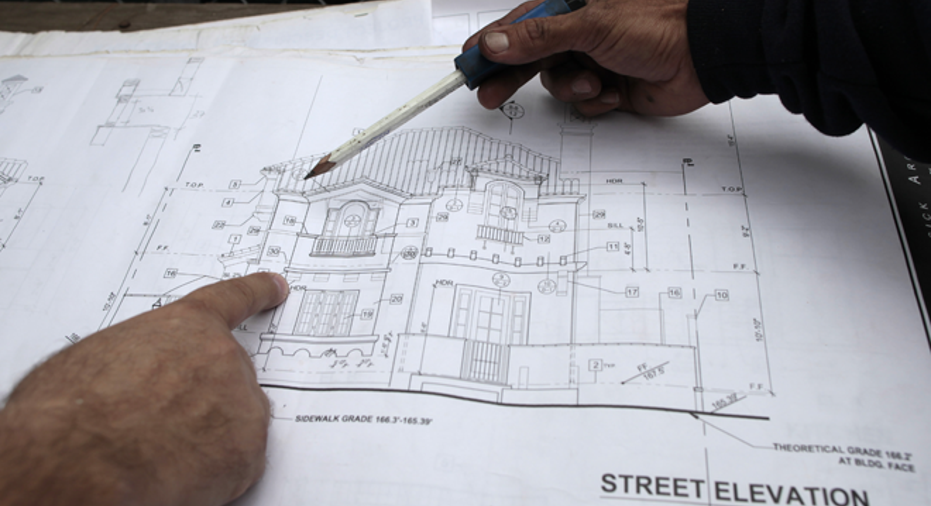4 Reasons It Will Be Easier to Buy a Home in 2015

Housing economists and would-be homebuyers are finding reasons for optimism as 2015 nears. To be fair, the bar’s set pretty low after a tough year for housing.
However, there are some genuinely encouraging signs that next year will be better for prospective buyers. Economic recovery and an improving job market will go a long way to boosting affordability for buyers in many markets.
Here’s a look at four reasons why the upcoming year might be a difference-maker for would-be homebuyers.
1. Looser Mortgage Credit
After years of hyper-cautious lending, more mortgage lenders are starting to relax credit and underwriting requirements, which are also known as “overlays.”
A big push in that direction came earlier this month when new guidelines from Fannie Mae and Freddie Mac took effect. These government-sponsored mortgage giants purchase about two-thirds of all new home loans.
The new policies were aimed at clearing up confusion about when lenders must buy back loans that go sour. Economists and industry insiders expect the newfound clarity will lead to broader access to mortgage credit.
“I’ve been told with absolute confidence that some lenders are lifting almost all of their overlays,” David Stevens, president of the Mortgage Bankers Association, told the Wall Street Journal.
The Urban Institute estimates more “normal” lending requirements could mean an additional 1.2 million home loans every year.
2. Lower Down Payments
Prospective buyers have another reason to high-five Fannie and Freddie: They’ve recently agreed to get behind loans with just 3% down. That lower benchmark, coupled with loosening credit standards, will likely help more first-time buyers enter the market.
Buyers will need at least a 620 FICO score and be on the hook for private mortgage insurance. Requirements for the 3% option vary between the two agencies. Depending on their path, buyers may need to complete a homebuying education program or show they haven’t recently owned a home.
“Our goal is to help additional qualified borrowers gain access to mortgages,” Andrew Bon Salle, a Fannie Mae executive vice president, said in a statement. “We are confident that these loans can be good business for lenders, safe and sound for Fannie Mae and an affordable, responsible option for qualified borrowers.”
FHA loans currently feature a 3.5% down payment requirement, but the accompanying mortgage insurance premiums have become increasingly expensive for many low- and middle-income borrowers. On a typical $200,000 loan, an FHA buyer might pay an extra $200 per month in mortgage insurance costs.
3. Cooling Home Prices
Some housing markets are still hotter than others. But the overall pace of housing price growth has slowed considerably. Freddie Mac’s housing price index soared 10% from September 2012 through September 2013.
Over the last year, the index is up just 5%, and Freddie Mac economists expect only a 3% increase for 2015.
Increases in housing inventory may also help to push down prices in some places.
4. Rates Still Low
Heading into 2014, most economists and housing wonks expected mortgage rates to top 5% by year’s end.
Last week, the average rate on a 30-year fixed mortgage didn’t even top 4%, according to Freddie Mac’s weekly lender survey. The 3.89% average rate marked an 18-month low.
A host of economic and geopolitical factors combined to keep rates lower than anticipated this year. They’re almost certainly going to rise in 2015, maybe even into that long-predicted 5% range, but they’ll still remain far below historical averages.
Before you buy a home, it’s important to check your credit to get an idea of whether you’ll meet lenders’ requirements. You can check your credit reports — you can get them once a year for free, and you can also get a free credit report summary on Credit.com — to see where you stand. You can also use this calculator to see how much home you can afford, which can help you target your search to a price range that is right for you.
More from Credit.com
- Why You Should Check Your Credit Before Buying a Home
- How to Get a Loan Fully Approved
- How to Search for Your Next Home
This article originally appeared on Credit.com.
A former journalist and author of “The Book on VA Loans: An Essential Guide to Maximizing Your Home Loan Benefits,” Chris Birk is also content development director for Veterans United. More by Chris Birk



















